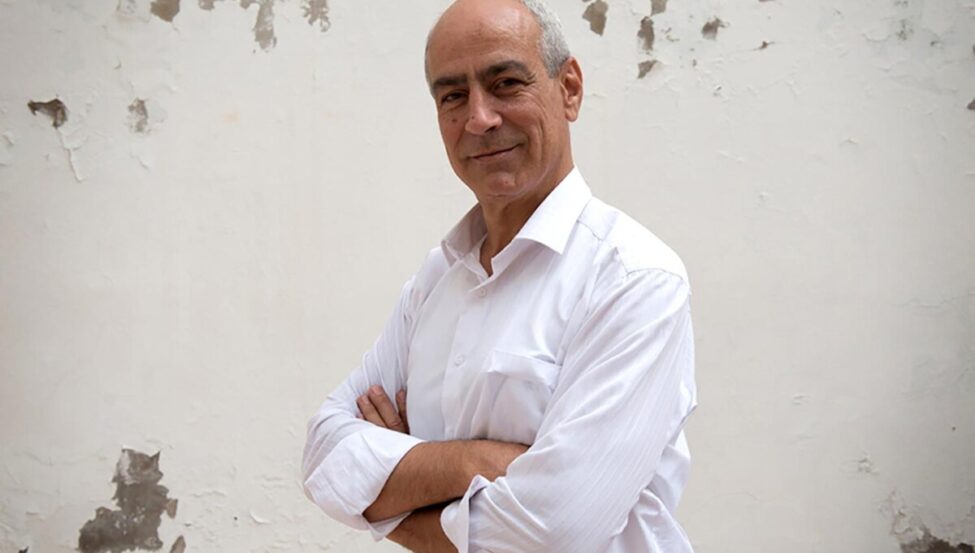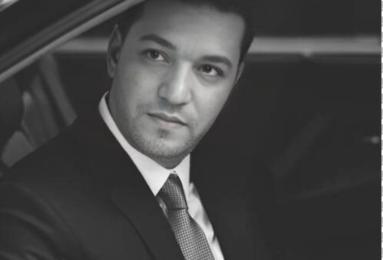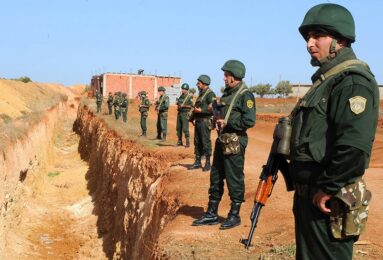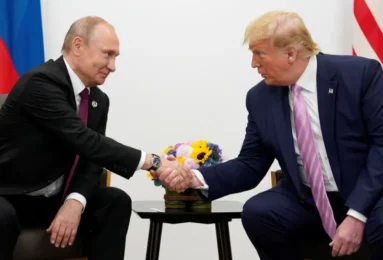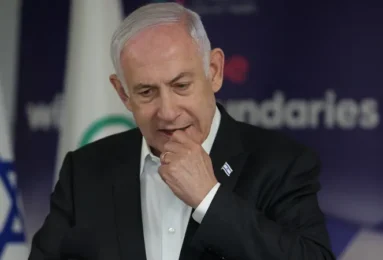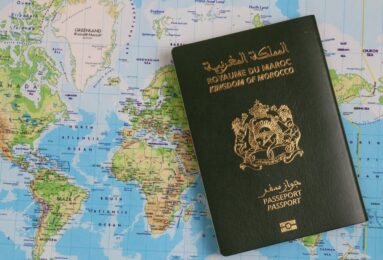Fouad Abdel Moumni, former president of Transparency Morocco, was born in 1958 in Berkane, Morocco. He was arrested twice by the authorities of the late King Hassan II and imprisoned for two years, then three years, before he was released and returned to his human rights and political activism.
Moumni later held leadership positions at the Moroccan Association for Human Rights (AMDH) and the Federalist Party of the Left, and wrote in the local and international press.
Moroccan authorities have considered him a troublesome and out-of-control figure since he led a dialogue between Islamists and leftists in Morocco, subjecting him to surveillance through Israel’s Pegasus spyware and covert camera installations.
Arrests and imprisonment
He was first arrested in 1981, the period known as the “Years of Lead” during the reign of Hassan II, for his participation in protests demanding improved social conditions in Morocco, which included demands against poverty and high prices, and was sentenced to prison, where he spent two years in Moroccan prisons.
In 1984, he was arrested again and sentenced to two years in prison, as part of a wave of arrests of many political and human rights activists at that time.
He also suffered torture and enforced disappearance for several years as part of the crackdown on political dissent.
New/Old Persecution
On October 30, 2024, the public prosecution and human rights organizations published statements announcing the arrest of Abdel Moumni by Casablanca’s National Judicial Police Squad, a security agency tasked with combating serious crimes.
He was arrested on charges of “disseminating false information and reporting a fabricated crime.” according to a statement by the King’s Prosecutor at the Casablanca Court of First Instance.
The Moroccan Association for Human Rights stated: ‘We express our unwavering solidarity with Abdel Moumni and with all individuals affected by political detention in Morocco, and we will closely monitor the developments of this case.'”
In response to his arrest, Mohamed Djaït, a lawyer at the Paris Bar Association, and Delphine Bassi, a lawyer at the Brussels Bar Association, published a joint statement saying that they would take the necessary legal action against the Moroccan authorities if he was not released.
The statement read: “If he is not released, we reserve our right to use all international mechanisms and tools to defend our client’s interests.”
The reason for the arrest is that the previous day, while in Switzerland, Fouad Abdel Moumni posted a short text on a social network on the occasion of President Emmanuel Macron’s visit to Morocco, in which he criticized the Moroccan authorities’ policy on international cooperation and espionage using the Pegasus spy program.
After three days of detention, the Casablanca Public Prosecution announced that it had released the opposition human rights activist Fouad Abdel Moumni and that he was being held in custody “on suspicion of committing criminal acts punishable by law.”
In a press statement, the spokesperson for the public prosecution explained that “this public prosecution decided to pursue him for suspicion of committing acts related to insulting organized bodies and spreading false allegations; and reporting a fictitious crime that he knew did not happen, deciding to pursue him in a state of detention and summoning him to the trial session.”
Pegasus and spy cameras
Fouad Abdel Moumni is one of the victims of the Israeli Pegasus program, and has joined a lawsuit in Europe and America against NSO, the manufacturer of the Pegasus spyware. The lawsuit includes a number of other Moroccan activists who were targeted by the spyware. The complaint was filed in a California court as part of a lawsuit filed by WhatsApp, which accused NSO of hacking about 1,400 devices around the world.
In the lawsuit, Abdel Momani and the other victims are demanding that the use of this program against activists and journalists be halted.
Human rights groups say Abdel Moumni’s case highlights a broader pattern in Morocco, where authorities are allegedly using the Pegasus program, developed by Israel’s NSO Group, to monitor activists, journalists and voices of dissent. This tactic is part of a systematic campaign against the opposition that includes defamatory media campaigns, trumped-up legal charges, and electronic surveillance.
The Moroccan authorities categorically deny accusations concerning the use of the Pegasus spyware against journalists, activists, and public figures, considering these allegations to be baseless and lacking credible evidence. The authorities reaffirm their commitment to international law, as well as to upholding privacy and human rights standards.”
Regarding the cameras, covert cameras were installed in his home during a period prior to February 2020. Abdel Moumni discovered that the cameras were planted inside the air conditioning units in his apartment, where they recorded videos of him and his fiancée in personal situations. These clips were distributed to members of his family in an attempt to pressure and discredit him for publicly criticizing the Moroccan regime and seeking to promote democracy and human rights in Morocco.

